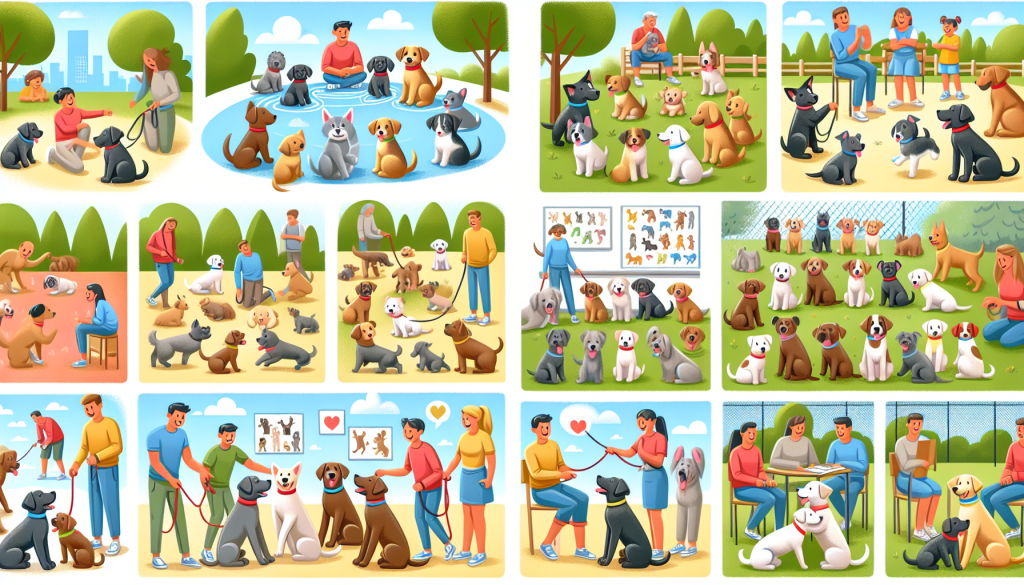So, you’ve got a new puppy and you’re excited to introduce them to the wide world of four-legged friends. But how exactly do you go about socializing your fur baby with other dogs? It’s important to lay a solid foundation for healthy interactions, promoting positive behavior and ensuring that your puppy grows up to be a well-rounded and friendly canine companion. In this article, we’ll explore some practical tips and strategies for successfully socializing your puppy with other dogs, making the process not only fun but also beneficial for their overall development.
What is puppy socialization?
Understanding the concept
Puppy socialization refers to the process of exposing a young dog to various people, animals, environments, and experiences in a controlled and positive manner. This helps them develop healthy behaviors, confidence, and essential social skills. It is crucial for puppies to have positive interactions and learn appropriate behaviors from an early age to prevent behavioral issues and ensure their overall well-being.
Importance of socializing a puppy
Socializing a puppy is incredibly important as it plays a significant role in their lifelong behavior and temperament. When puppies are properly socialized, they are less likely to develop fear, anxiety, or aggression towards unfamiliar people, animals, or situations. It helps them become well-adjusted and adaptable adult dogs who can confidently navigate the world around them. Socialization also aids in building their trust and strengthens the bond between the puppy and their owner.
When to start socializing your puppy
Ideal age for socialization
The ideal age to start socializing a puppy is between 3 and 14 weeks. This is known as the critical socialization period, where puppies are most receptive to new experiences and are quick to form positive associations. During this time, they are more adaptable and less likely to perceive new stimuli as threats. Early socialization provides a solid foundation for their future interactions.
Considerations for older puppies
If you have an older puppy who hasn’t been properly socialized, it is never too late to start. While it may take a bit more time and patience, older puppies can still benefit from socialization. However, it is important to approach the process gradually and be mindful of any fear or anxiety they may exhibit. Tailor the socialization experiences based on their comfort level and build positive associations step by step.
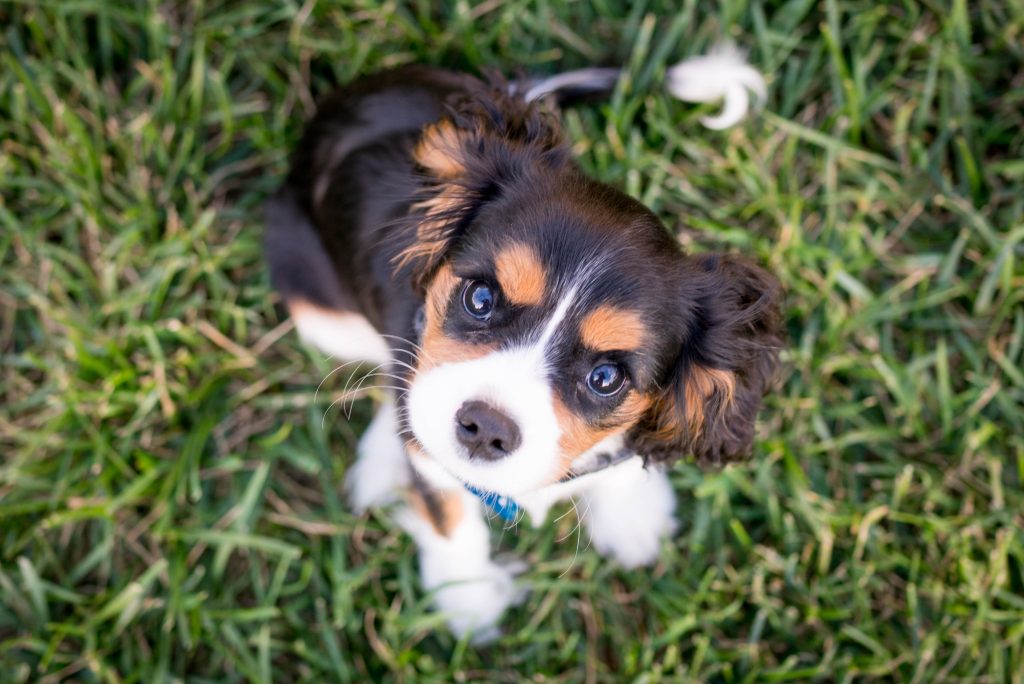
This image is property of images.unsplash.com.
Preparing for socialization
Vaccination requirements
Before embarking on the socialization journey, ensure that your puppy’s vaccinations are up to date. Vaccinations protect your puppy from potentially life-threatening diseases, and it is important to follow your veterinarian’s guidelines regarding when it is safe to socialize your puppy outside of controlled environments.
Choosing appropriate locations
When choosing locations for socialization, opt for places that are clean, safe, and relatively low in stimuli at first. Suitable locations may include quiet parks, dog-friendly cafes with outdoor seating, or friends’ backyards. Avoid crowded places, especially in the initial stages, to minimize overwhelming experiences for your puppy.
Gathering necessary supplies
Before taking your puppy out for socialization, gather essential supplies such as a well-fitting leash, collar or harness, waste bags, treats, and water. These items will help ensure you are prepared for various situations that may arise during socialization and make the experience more comfortable and enjoyable for both you and your puppy.
Introducing your puppy to other dogs
Gradual introduction
When introducing your puppy to other dogs, it is crucial to take things slowly. Start by arranging controlled meetings with well-behaved and vaccinated dogs that are known to be friendly and calm. Allow the dogs to approach each other at their own pace while closely monitoring their body language. Gradually increase the duration of their interactions as the puppies become more comfortable with each other.
Choose friendly and vaccinated dogs
One of the key considerations during puppy socialization is choosing dogs that are known to be friendly and have a positive history with other dogs. This minimizes the risk of negative experiences or potential exposure to diseases. Ensure that the dogs your puppy interacts with are up to date on their vaccinations and have a calm demeanor to create positive associations.
Supervised interactions
Always supervise interactions between your puppy and other dogs to ensure their safety and well-being. Observe their body language for signs of stress, fear, or aggression. If any negative behavior is displayed, calmly separate the dogs and redirect their attention to something positive. This will help prevent any undesirable behaviors from being reinforced during socialization.
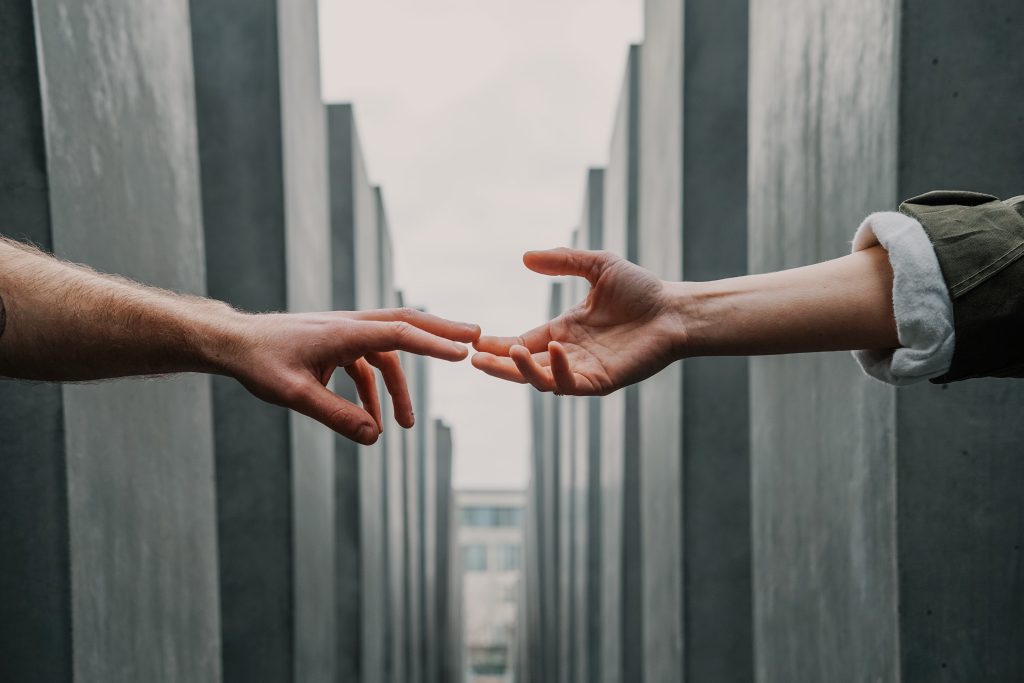
This image is property of images.unsplash.com.
Positive reinforcement and rewards
Importance of reward-based training
Positive reinforcement is a powerful tool when it comes to socializing your puppy. Reward-based training involves providing treats, verbal praise, and affection to reinforce desired behaviors, such as appropriate greetings with other dogs or humans. This approach helps puppies associate social interactions with positive experiences, making them more likely to repeat these behaviors in the future.
Rewarding desired behaviors
During socialization, actively look for moments when your puppy displays desired behaviors, such as calmness, proper manners, or friendly interactions. Immediately reward these behaviors with treats and praise. This positive reinforcement strengthens the connection between the behavior and the reward, making it more likely that your puppy will continue to display those behaviors in the future.
Socializing in different environments
Introducing various settings
To ensure a well-rounded socialization experience, expose your puppy to different environments. This can include walks in the neighborhood, visits to pet-friendly stores, encounters with different types of flooring or surfaces, and outings to public parks or beaches. Gradually exposing your puppy to new settings helps them become comfortable and adaptable in various environments.
Exposing to different noises and stimuli
Puppies should be exposed to a variety of noises and stimuli during socialization to minimize fear or anxiety towards them in the future. Take your puppy to places with different sounds, such as traffic, construction sites, vacuum cleaners, or fireworks recordings. Pair these noises with positive experiences, such as treats or playtime, to create positive associations and build their resilience.
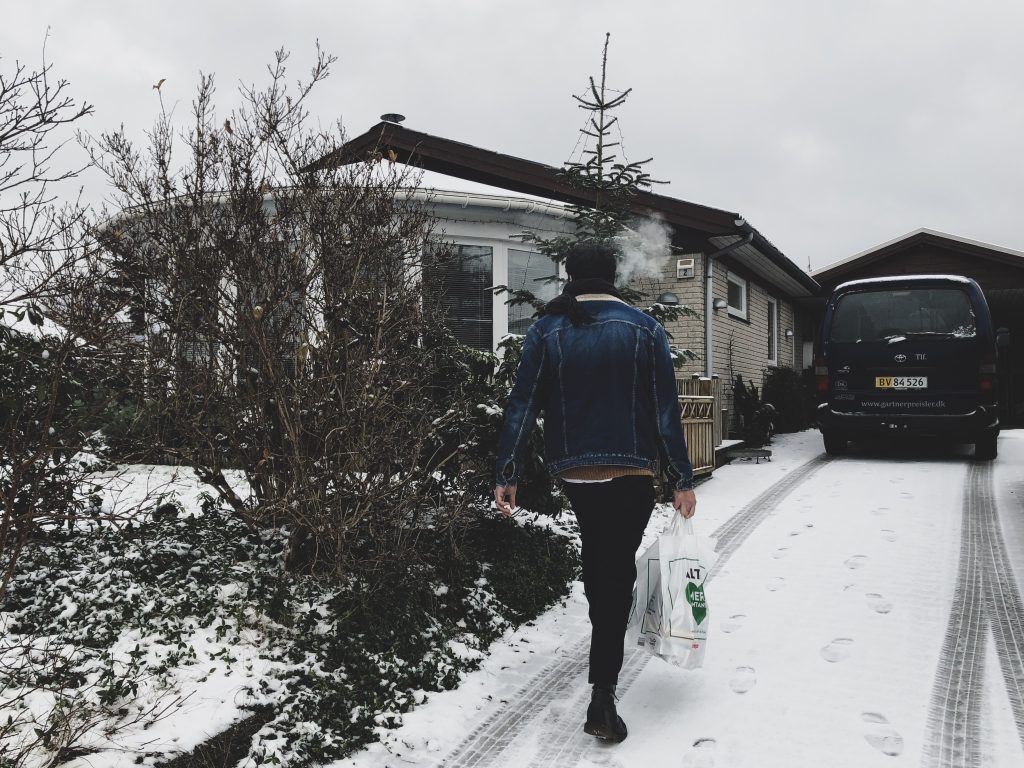
This image is property of images.unsplash.com.
Handling challenges during socialization
Fear and anxiety
Sometimes, puppies may exhibit fear or anxiety during socialization experiences. It is important to handle these challenges with patience and empathy. Provide reassurance by speaking in soothing tones and offering treats as positive distractions. Gradually expose your puppy to the source of fear at their own pace, using positive reinforcement to help build their confidence and create positive associations.
Dealing with aggression
If your puppy displays aggressive behavior during socialization, it is crucial to address it promptly and appropriately. Aggression can stem from fear, stress, or a lack of proper socialization. Consult a professional dog trainer or behaviorist for guidance on how to manage and modify aggressive behavior safely. It is essential to prioritize the safety of all parties involved and to seek professional help if needed.
Seeking professional help if needed
If you are facing challenges during the socialization process that you are unable to navigate on your own, do not hesitate to seek the assistance of a professional dog trainer or behaviorist. They have the knowledge and expertise to address specific concerns and can provide guidance tailored to your puppy’s individual needs. Remember, there is no shame in asking for help, and it can make a world of difference in your puppy’s socialization journey.
Building confidence and trust
Encouraging exploration
Allow your puppy to explore their surroundings at their own pace during socialization. Encourage them to approach new people, objects, and environments while providing support and reassurance. This builds their confidence and helps them understand that new experiences are positive and enjoyable. Avoid rushing or forcing your puppy into situations they may find overwhelming, as this can have a negative impact on their trust and confidence.
Emphasizing positive experiences
Focus on creating positive experiences during socialization to strengthen the bond between you and your puppy. Engage in activities they enjoy, such as interactive play sessions or hikes in nature. Show enthusiasm and provide positive reinforcement when they interact with other dogs or humans in a friendly and appropriate manner. These positive experiences will contribute to their overall well-being and form the basis of a trusting relationship.
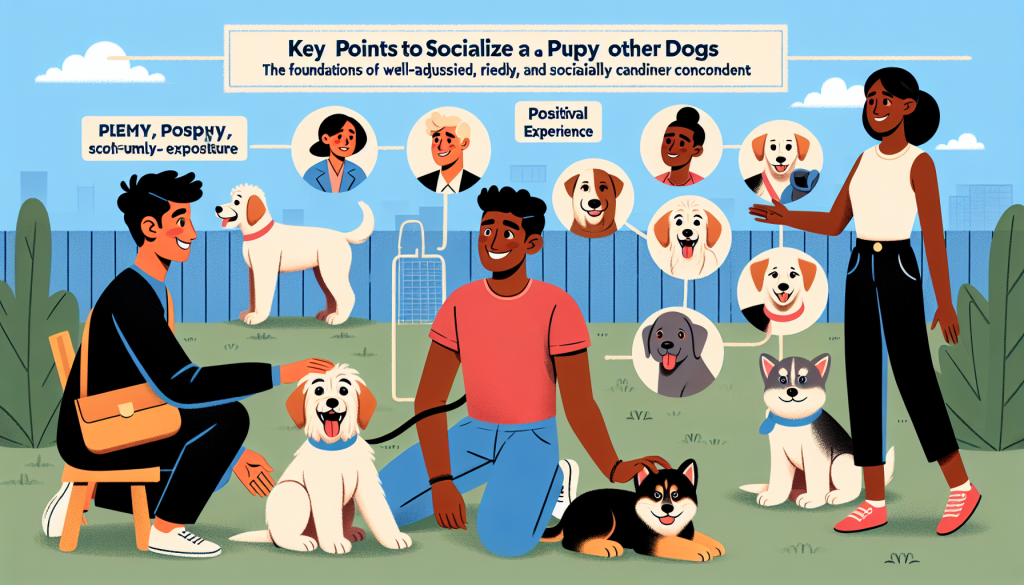
Socialization with humans
Introducing different people
Introducing your puppy to a variety of people is essential for their socialization. Expose them to individuals of different ages, genders, ethnicities, and appearances. Encourage gentle interactions, allowing your puppy to approach and sniff unfamiliar people while providing treats and praise for calm and friendly behavior. This helps your puppy develop positive associations with different types of individuals and reduces the likelihood of fear or aggression towards humans.
Teaching appropriate behavior towards humans
While socializing with humans, it is important to teach your puppy appropriate behavior. Teach them basic cues such as “sit,” “stay,” and “leave it” to help them navigate social interactions politely. Avoid encouraging jumping, nipping, or any other behaviors that could be seen as inappropriate or intimidating. Consistently reinforce positive behavior and redirect any undesirable behaviors using positive, reward-based training methods.
Continuing socialization throughout puppyhood
Maintaining regular social interactions
Socialization is an ongoing process that should be continued throughout your puppy’s life. Regularly expose them to new experiences, environments, and interactions to further reinforce their social skills and adaptability. Maintain a balanced approach, gradually increasing the complexity and intensity of socialization experiences while ensuring your puppy’s comfort and well-being.
Joining puppy socialization classes
Enrolling your puppy in puppy socialization classes can be highly beneficial. These classes provide controlled environments where puppies can interact with other dogs and learn from experienced trainers. Puppy socialization classes also offer opportunities for you to learn more about dog behavior, training techniques, and receive guidance from professionals. These classes can be a fun and educational way to enhance your puppy’s socialization journey.
Ultimately, socializing your puppy is a vital part of their development. By understanding the concept and importance of puppy socialization, choosing appropriate locations and companions for their interactions, utilizing positive reinforcement techniques, and providing consistent exposure to various environments and stimuli, you can help your puppy grow into a well-adjusted, confident, and friendly adult dog. Remember to handle challenges with patience, seek professional help when needed, and continue socializing your puppy throughout their life to ensure a happy and harmonious bond between you and your furry companion.
